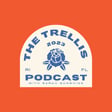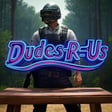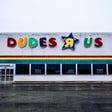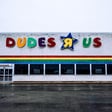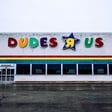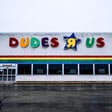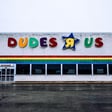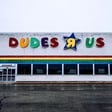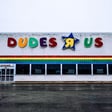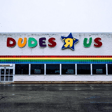Become a Creator today!Start creating today - Share your story with the world!
Start for free
00:00:00
00:00:01

Andrew from @andrew_the_arborist
This episode of the Trellis Podcast is for the tree-huggers! Andrew and I discuss an arborist's work, how his community volunteering leads to his own nonprofit's development, and more. Andrew has an incredible community on Instagram and Youtube, he educates on the importance of planting native, getting involved, and following your own path into the green space. I enjoyed my conversation with Andrew, and learned so much too!
Recommended
Transcript
Introduction to the Trellis Podcast
00:00:00
Speaker
All right. Awesome. Welcome back to the Trellis podcast. This is episode six. I'm here with my internet friend, Andrew. He is on Instagram at Andrew underscore the underscore arborist. Those underscores will get you sometimes. I swear on Instagram. It's a little, but it's a good time.
Discovering Andrew's Work
00:00:20
Speaker
When people ask in person what my handle is, I have to say the underscores, and that's the worst part. So instead of a space or if it was just one word, just throw in a bunch of extra lines. It's a really good time. Yeah. I love that. So I actually found you, of course, on Instagram. I saw your video of the American sycamore tree that you were in the process of removing the ivy from.
00:00:46
Speaker
And I like DM'd you after that and I asked you like, what are we doing about this? Like we know this is invasive in like the East Coast or like the East of the United States, but like you say in your post, like people just sell them and they put their responsibility instead of on like the stores to not distribute them, they put them on the consumer, which is kind of a tough thing, but it creates an opportunity for people like you and people like me to educate people.
Environmental Education and Nonprofit Work
00:01:14
Speaker
You educate people through your Instagram. You have an incredible Instagram following. It is so wonderful. You educate people so well. And then you also have your nonprofit as well. But if you would like to start off and tell us kind of the story, how did you end up here? How did you become Andrew the Arborist on Instagram?
00:01:35
Speaker
Yeah, well, first, I guess I wanted to touch on the Ivy. Do you guys have that down? You're in Florida, right? In Tampa area? Yeah, so they sell it down here in stores. I actually haven't seen it out. We go hiking and stuff, and I really don't see it too much. And I'm not sure if it's invasive down here, but it would definitely do well.
00:01:55
Speaker
Yeah, I mean it's a popular seller up here still, but I think like the younger generation, like our generation and younger are like starting to catch on and plant native. But yeah, I still go to my local Lowe's and Home Depot and it's like 95% just like non-native plants that
00:02:13
Speaker
make no sense. But anyway, yeah, I can talk a little bit about, I guess, how I started. Yeah, I was always interested in environmental issues. Ever since I learned from my middle school science teacher, he was the first to teach about climate change. And ever since I learned about that in sixth grade, I was interested in how humans are changing or are hurting the planet and all the different
00:02:41
Speaker
things that we're doing, messing things up and stuff. So I've always been interested in how we can make small changes to better
00:02:51
Speaker
to help the planet to reverse the damages, the damage that we've done and things like that. So I ended up majoring in environmental science in college. And then, but during that time I did some research with like molecular biology and like genetics and stuff in a lab. And for some reason I decided to go down that route for grad school. So I applied for a PhD program
Arboriculture Passion and Career Shift
00:03:18
Speaker
And I got in for a biology, like more genetics and population genetics and evolution, which I was interested in, but not like it wasn't my passion, I guess. I think it was a wrong decision, ultimately.
00:03:35
Speaker
quickly into grad school, I realized that it wasn't the right path for me. And I found myself wanting to be outside and wanting to get back to my environmental passions. And around that time was also when I started volunteering with environmental conservation organizations like in Philly, Philly Parks and Rec.
00:03:59
Speaker
just a number of different groups, Fairmount Park Conservancy. We have a lot of really big nice parks in Philly, we're lucky. And I started volunteering with these groups and learning that there are good plants and bad plants and I hadn't really developed a passion for plants until it was like until this time and
00:04:23
Speaker
And I realized getting rid of invasives, planting native, planting native trees, all of those things helped combat so many environmental issues at once. And so it kind of clicked for me that this was what I wanted to do. I wanted to, especially in my area, and Pennsylvania historically was mostly forested. There were tons of trees. Pennsylvania literally means pens, woods, after William Penn.
00:04:51
Speaker
I really just fell in love with trees and then more so with plants. And just like I said, it just fights so many environmental issues at once. With climate change, it helps store carbon. With the biodiversity crisis, it helps support wildlife.
From Gaming to Environmental Education
00:05:09
Speaker
So when those things clicked, that's when I kind of got the ball rolling. And I guess I've always had video making, hobbies or passion.
00:05:20
Speaker
You know, I was in middle school and high school, I played a lot of video games and I had a YouTube gaming channel on YouTube. So I uploaded just gameplay and me talking over it. And I did that for like a decade. And so I guess my video hobby just kind of transitioned into plants and educating and environmental education.
00:05:41
Speaker
Yeah, it's been great. I'm really surprised at how well received some of my videos have been, which is really good because it shows people are interested in this stuff.
00:05:54
Speaker
Definitely. Yeah, absolutely. I mean, your page is so educational. I think it's so great when people can get out there and give that information. Because like you just said, you've always been interested in this. You even went to school in a relatively, maybe a cousin path of what you're doing now. And it still took until after that for it to click with you all the plethora of information that there is. And like you said, our generation is so lucky. This information is at the tip of our fingers now.
00:06:23
Speaker
but like there has been damage done already. And so reversing that and being able to help show people like you can remove this and we can plant this instead like that is so just such a worthy cause. Can you talk a little bit about your nonprofit and the work that you do with that?
Community Engagement and Volunteer Events
00:06:41
Speaker
Yeah, sure. So like I said earlier with volunteering with these environmental groups in the Philly area, I kind of wanted to bring that same type of work to my hometown in the suburbs because there were not really many groups doing that type of work in my area.
00:07:00
Speaker
After I had learned a little bit more about how things work in my area, what plants are good, what plants are bad, I founded a nonprofit in my area focusing on planting and restoring native trees and also removing invasives and
00:07:18
Speaker
maintaining natural lands and educating as well. So that's what we kind of do. We focus on just a couple townships around where I grew up and in the spring and fall we do a lot of native tree planting and a lot of natural lands management and invasive removal and we do
00:07:39
Speaker
maybe 25 to 30 volunteer events a year where we encourage the public and get a whole group of people to come out.
00:07:49
Speaker
hundreds of volunteers a year and we do a little bit of education showing them why we're getting rid of these plants and why we're planting these ones. I think it's been great and a lot of people really enjoy helping do that kind of work. It's really fulfilling because, at least for me, it helps reduce my climate anxiety and
00:08:13
Speaker
biodiversity anxiety and all types of eco anxieties that there are. But I think that's why people like it so much because it makes them feel good.
00:08:22
Speaker
Yeah, definitely. I think that's like, that's definitely my favorite part of like being on Instagram and in that community is like, when people reach out and they're like, I'm a new gardener, or like, I'm just getting into this, like, how can I help and just like, you just want to pull them in, you're like, let's yes, do this, like get into it as much as you can, like, and it's so absolutely so just incredibly rewarding.
Advanced Tools and Unbiased Consultations
00:08:44
Speaker
It's a great community having so many people like on Instagram, so close, you know, having that knowledge, like you said, at your fingertips, like I can learn about ecosystems in the Southeast from some someone and then like in British Columbia, there's a whole bunch of like, so it's just following different pages from all over and seeing what they what good work they're doing. It definitely gives some hope.
00:09:07
Speaker
Absolutely. And what about, um, you posted another video recently that I thought was like incredibly interesting. It was like very, the science, um, and like the data behind it. You, you guys were called out. So you work as an actual arborist as well. You guys were called out to inspect a tree and you use this incredible tool that looked like it was from outer space. It was so awesome.
00:09:31
Speaker
And you actually measured the strength, I think it's like 15 centimeters deep into the tree, created a graph and this like beautiful graphic I found that shows the strength of the tree and you were able to educate, I think your customer about whether the tree was worth saving or not. And unfortunately it came that you couldn't save it, but
00:09:51
Speaker
Can you tell me more about what you do in that side of your work as well and how do the customers reach out to you? Do tree companies reach out to you? How do you utilize an arborist? Yeah, sure. I guess in the Philly area and in places where
00:10:10
Speaker
Yeah, just places where a lot of people are. There's kind of a new field called urban forestry, and this is just dealing with trees and plants in the urban setting. I mean, the Philadelphia area and the suburbs and this whole southeastern Pennsylvania is pretty much built out. Everything's developed. There's not much open space left.
00:10:30
Speaker
in most in a lot of places. So we've altered the environment so much and we have trees growing next to houses and things like that. So there's a need for arborists who know how to work with trees, I guess, in urban
00:10:45
Speaker
Um, urban areas. So, um, you know, if you go out into rural areas, you probably won't find an urban forest or for obvious reasons or consulting arborists as,
Challenges in Urban Arboriculture
00:10:55
Speaker
as recalled. So I don't do any climbing or any chainsaw work or anything like that. I just do like consulting. Um, and, um, just like, yeah, urban forestry work like, like this we did in this video, but, um, so yeah, customers will reach out.
00:11:14
Speaker
if they know. Sometimes it unfortunately happens in our area a lot where they just call a tree company who's
00:11:23
Speaker
looking to make a couple thousand from cutting down a tree, and they'll say, oh, the tree's bad. It's got to go. It's dead. It's dying on the inside. It's got 19 diseases. But the good thing about having us or another consulting arborist come in is that we're not tied to any tree company. So we're a non-biased opinion of the tree. We're going to give our full assessment. And we love trees, so we want to see
00:11:50
Speaker
these things preserved if possible, but we're going to give you the best assessment that we can without swaying towards cutting it down to make money and whatever.
00:12:02
Speaker
So yeah, people reach out and they ask these types of questions. This is a really interesting example where they have a huge tree like that that clearly has some decay issues at the base. And we can do an assessment using a really cool piece of technology.
00:12:20
Speaker
But we've done all sorts of jobs from like cemeteries calling us and wanting a full tree inventory on their property, like wanting a map and a list of all the trees there and what shape they're in and what species they should be replanting, what trees have to come down, things like that. So we do a lot of different
00:12:42
Speaker
a lot of different, offer a lot of different services and we work with a lot of different clients like construction companies and private homeowners and churches and schools. So it's really interesting and there's always new clients and new people to work with and each of them view and value trees and nature in a different way.
00:13:05
Speaker
So, yeah, I guess they call us out. We do the job and we provide them with a report and they usually listen to our suggestions or, you know, go with what we recommend. But sometimes they sometimes they don't. But yeah,
Ecological Impact of Development
00:13:21
Speaker
we do our job and.
00:13:24
Speaker
just hope that they, I guess, listen to what we recommend. You can only hope. Do you find that construction companies are contacting you guys to do the best jobs that they can to not lose? I mean, that tree was gigantic and absolutely beautiful. So it was really unfortunate to see that one come down. But do you find construction companies are becoming more willing to work with arborists and do, hopefully, what is the right thing for the trees in the area? Yeah.
00:13:54
Speaker
Unfortunately, not not really. I think the only times we really work with construction companies is when when they're required to have an arborist involved. Like if we're we do a lot of work at the University of Pennsylvania or Penn and their their policy there is like any construction that involves, you know, that will could potentially impact trees nearby. You have to have us come out and like help preserve those trees. So it just like depends on
00:14:24
Speaker
the municipality or the organization above. Like some cities and some municipalities have really good tree ordinances that require an arborist to be involved for any project like this or require trees to be replanted if they're cut down. And then other municipalities have really bad, like they don't have any kind of requirement for tree preservation or tree replanting. So developers will just go in and just
00:14:52
Speaker
clear cut everything, even if they don't, even if it's not in their way, they just kind of clear the land is just what they're used to doing. But yeah, usually when we work with construction crews, like the first meeting, they're like, annoyed and like, you know, but I think over time, they kind of learn that
00:15:12
Speaker
Like this is a 55 year old, 60 year old tree that is really nice. It's healthy. Like this, this can't be replaced by planting two or three little trees. Like these are valuable things that we have to protect if we can, you know, if, if there's a way to do the construction, you know, just instead of laying equipment down here, you move it over here. Like, um, it seems like a good compromise.
00:15:37
Speaker
Yeah, definitely. It's really interesting. We're down here in Florida, and obviously tons of people have moved here in the most recent years. And we're close to farmland still, but we see them developing constantly. And they do. They just go through and just clear cut whole areas. I can't imagine living down here on a few acres, and all of a sudden across the street is just clear cut. I know. I mean, there's obviously hundreds of ecological impacts. But what is the biggest one that you
00:16:06
Speaker
fear when they're going in and clear cutting areas like that. Yeah. My friend also lives in the Tampa area and I visited him two or three times now and him and his partner just bought a house in the last two years and it was new development. I don't know, I guess it was
00:16:28
Speaker
Previously farmland so it had already been cleared at that point, but still like just driving around seeing like so much new development It's crazy. I guess I'm not used to that up here because everything's already Everything's already developed, but I think the biggest thing is just Habitat loss and habitat fragmentation like There's there's ways I guess to develop
00:16:54
Speaker
while leaving good pieces of land intact. I don't know too much about this, but I've seen some good developments that leave a continuous connection to wooded areas so wildlife can move through. It's just around here when I see new developments in a county or two counties away from me.
00:17:18
Speaker
it's usually clear-cutting oak forests, which are extremely valuable ecologically, and replacing them with calorie pears and honey locusts. And it's not good. And obviously, most developments will just mostly will be just turf grass. So just losing all of that natural habitat
00:17:45
Speaker
and then fragmenting natural spaces by putting a development in the middle. Those are the biggest things, I guess. Yeah, it's definitely wild to see. It's very, I don't know, we're in an older neighborhood, so it's not too bad here. But even still, the oak trees that are down here that come down during storms and stuff are crazy. I've never seen anything like that. We had a pretty bad hurricane last season.
00:18:13
Speaker
And it was wild to see the size trees that come down. And it's really sad also. There's an area in the back of our neighborhood that two or three trees came down and damaged several houses. And a tree company just came in. And when I tell you, they cleared every single tree in their area. And it's genuinely so sad to see. We see the hawks flying around and the birds and the butterflies. And all I can think of is, well, what did we just do? Whose house did we just ruin?
00:18:41
Speaker
I know that we see it that way as a younger generation like we keep saying but our generation like it's funny you said middle school like I remember for some reason one of my very first field trips was like we went to the recycling center and I feel like our generation is just like we don't know what's going on yet but like the
Starting with Arborist Consultations (Q&A)
00:18:58
Speaker
earth
00:18:58
Speaker
we definitely have to do something. But it's tough educating like older generations that that's just like, I don't know, the access to the information is like not there. So that's definitely a scary part. But I can appreciate like, at least we're trying to do something like that. Is there where do you suggest people start? Like if you're a new homeowner, like is there a great place to start and content like,
00:19:23
Speaker
is contacting an arborist something you should do when you step move in like just starting to plant like where do you hope people start when they when they get into this journey yeah i think um if you have trees on your property or near your house or hanging over your house i think contacting arborist is always a good good idea ideally an arborist that's not affiliated with a tree cutting company if you can find one but um yeah just getting an idea of how
00:19:51
Speaker
healthier trees are, what kind of shape they're in, if they need to be pruned or whatever. I think up here, a lot of people, I see it all the time in my area, people are just afraid of big trees. And even if it's perfectly healthy, if it's leaning or has a branch coming toward the house, they just cut the whole thing down. They're just, get it out of here, I don't want it falling on the house.
00:20:16
Speaker
But there's ways, you know, obviously in a bad enough storm, even the healthiest of trees will break and come down. But some trees around here have been like here for so long, 100 plus years, and have survived all sorts of crazy storms and hurricanes and tornadoes and stuff. So I think people just have to, I think getting an arborist is a great idea if you want to
00:20:42
Speaker
understand your trees better. But as for like gardening or habitat restoration on your property, I think volunteering is a good way to go.
00:20:56
Speaker
a local environmental conservation organization or a native plant society nearby and you want to learn about what plants do well in the garden and are deer resistant or whatever. This is Buffy. That was awesome. Hi Buffy. That was amazing. Oh yeah, get a microphone sniff in there. Oh my god.
00:21:24
Speaker
Yeah, in the Philly area especially, there's so many organizations and groups that are focused on native plants or local public gardens that use native plants only. These are all good places to look for or get a better idea or learn about where to start on your property. Yeah, definitely. Do you have a lot of gardening going on yourself or do you have so much going on with work that you don't bring it home?
00:21:51
Speaker
Yeah. So I definitely, um, I definitely garden at home and each year I still live, I still live at my, my parents' house and we have, um, a good amount of lawn. So over the last, like I've been learning about this for maybe four or five years. And each year I ask for a little bit more lawn to take, and I take out the lawn and put some native plants in. And I think my mom, my dad is fine. He's like, yeah, do whatever you want. Like, but my mom is.
00:22:21
Speaker
the one who pushes back a little bit. But I think she's finally catching on this year. She really likes all the plants. It looks the best this year out of any year because we've been adding so many plants. There's always something in bloom. There's so many different colors when people drive by. We live on a busy state road, so there's a lot of people that drive by, a lot of traffic. I think it's a great opportunity to also show that native plants can be pretty and there's bees flying around.
00:22:50
Speaker
Yeah, I am hoping to continue like covering my property with native plants if I can. Yeah, it's such a fun. I love that the premise is like that the kill your lawn plant for pollinators that kind of premise and I absolutely love it our front yard I'm like working diligently to rip all the grass out which is so difficult sometimes. Yeah, but I do like
00:23:16
Speaker
It's almost not that it's like great that your mom pushes back a little bit, but I do think sometimes people can get The idea comes across that you have to remove like all of your lawn like all that has to be gone And realistically like is those tiny increments that you go each year slowly working to do something just a little bit better which is really like the goal for all planting and all gardening is like just doing something just a little bit better and
00:23:41
Speaker
Yeah, totally. I think that's the best way to approach it like just take a little bit at a time and add more the next year or whatever. It's overwhelming to try to do it all at once. But yeah, I think it's, you know, in the spring, I'm always like itching to do work and like ready to get out there. And I always like
00:24:04
Speaker
you know, make a new garden bed in the spring or like rip up lawn in the spring. And then by summer, that like eagerness like fades away a little bit. But slows down a little bit. Yeah, definitely get overwhelmed. And then you have tons of plants that you got to get in.
Revitalizing Parks and Ivy Removal Projects
00:24:18
Speaker
And yeah, but yeah, I think I think a piece at a time is great. But yeah, definitely you don't have to get rid of all of the lawn. Like we leave a section open for my sister to play with her dog.
00:24:30
Speaker
like by fetch. And we have just like a mode path through the garden beds and stuff. But it's so much fun. Yeah. Are there any projects that you're working on right now between like your nonprofit or anywhere else that you're volunteering that you're working on?
00:24:45
Speaker
Yeah, my nonprofit plants out a lot of parks and just public parks and green spaces around our area that have been kind of neglected for so long or just not cared for in any way, like the township mows the grass and that's it.
00:25:02
Speaker
And for decades, they've been mowing, you know, my my personal favorite projects, I think, are riparian restorations like planting trees and plants along a stream to help improve the stream bank and to reduce erosion and restore wildlife. So one of my favorite projects is a park right down the street and the township, as we've worked more with them over the years, have gained like we've they completely trust us and they pretty much just are happy that we're able to
00:25:32
Speaker
help them and plant trees. So they just kind of let us do whatever we want. So we've planted like 60 native trees along the stream here and we are working on making like a no-mo zone so that
00:25:48
Speaker
those roots can get deeper and hold that soil in place and reduce erosion a little bit. But yeah, we've planted a lot of trees in public parks and it's really cool just driving around my area and just like, I planted that tree or like, oh, that tree's looking great. Like it's cool to see all the different spots that we've restored a little bit of native plants to.
00:26:14
Speaker
That's awesome. Do you, um, so like you said, that one's like in your hometown. It's an area that you drive by, um, that American Sycamore, like our projects like that, something that you drive by, you see them and you approach people like, Hey, can I help work on this? Or do you find it's usually people reaching out to you?
00:26:31
Speaker
Yeah. So for the Sycamore video, that was near a big park in Philly and I was just going for a hike there one day and I was like, that's a really bad infestation. I've never seen so much English ivy on one tree. So I like went home. I like looked if the tree was on the park property or on
00:26:52
Speaker
a private property right next door and it just was on the border but it was on the private property so I like looked up who owned the house and I like googled her name and found that she had a website because she it's like a pretty wealthy area so I guess she I forget she has some kind of like
00:27:11
Speaker
website, but, um, I emailed her just like randomly and said, can I cut the English Ivy off of your tree? And like, she was on the, um, she was on like the local board for the park, like for like stewardship of the parks. I'm like, shouldn't you like get this cut off yourself? Like, anyway, but I reached out and she was like, yeah, sure. How much do I owe you? And I was like, you don't have to pay me anything. I just want to make a video about it. And, um,
00:27:41
Speaker
it worked out. The videos have done really well and I think a lot of people know how to remove English ivy from a big tree now. That was crazy. I watched that video and I was like, first of all, those roots are the craziest thing I've ever seen. It was caked on. There was inches thick. That was nuts. Was the bark underneath it damaged or was it actually healthy underneath?
00:28:03
Speaker
Yes, I was worried that like because the vines were so thick that like what happens is when the leaves of the sycamore end of the ivy fall off, they get caught in those crevices sometimes and they can just break down and they'll turn into soil and that soil will hold like moisture against the trunk. And like over time that moisture will rot the bark away. So I was really worried like at first that there was just no bark and that like if I cut this
00:28:33
Speaker
Ivy off like there would be nothing underneath or like the tree would fall. I got all sorts of crazy fears, but I had my boss come out and take a look and he was like, no, this is fine. Just cut the vines. And so I did. And it's yeah, it's fine. In some spots, I think there's a little bit of bark decay, but the bark
00:28:55
Speaker
I think it was towards the base and the bark is thicker there. So I think the tree will be fine. How's it looking now? You posted recently that it was doing well, all the vines were dying, but has the sycamore actually put its own leaves back out yet?
00:29:09
Speaker
Yeah, the sycamore looks great now, and the vines are dead. But the vines were so mature and old that they had a lot of their own branches coming out of the vines. So all up the tree, there's just dead branches now that have no leaves on them. So it looks kind of bad, to be honest. But the homeowner, if she has an issue with this, she can probably just have her landscapers or arborists
00:29:39
Speaker
prune them up. But yeah, it, it looks kind of bad, like with the bare vine, but the tree looks fine. And sycamores in my area have this like fungal issue every spring. And they struggle to leaf out and like by midsummer, which is like around now, they look fine. That is so fun. How did it take you a long time to get through that?
00:30:04
Speaker
Yeah, it took longer than I would have liked. It always does. No garden project just takes how long you think it's going to take. Exactly. It takes like two times if you're lucky. But yeah, I don't own a chainsaw or I didn't at the time. So I was using a handsaw and loppers and it was like rough. But I think maybe I put like
00:30:30
Speaker
12 hours into the tree total.
Using Technology in Tree Health Assessment
00:30:33
Speaker
But it was a fun and interesting experience. I learned a lot from it. I don't know if I would do it again without being paid for it. But that's fair. Yeah, it was. But yeah, and the videos did really well. So I guess the videos helped helped pay for it. But
00:30:52
Speaker
Yeah, that was but like other other videos like most of my other videos that have done well in the past have been from job like clients that we that we went to and
00:31:04
Speaker
You know, there's always like interesting tree situations from our clients. So I'm lucky that I get to whether that, that I was able to make videos about them. Do you have any other like favorite crazy ones that have happened maybe recently or not even recently, just other favorite, uh, tree identifying, helping, saving sorts of things?
00:31:23
Speaker
Yeah, I'm trying to, I think, um, we already, we already talked about the resistance drill a little bit. I think that was so cool. I could not believe just the process of putting those data points together to show the graph of where the weaknesses was in the tree was like.
00:31:39
Speaker
What an incredible tool and way that humans can like interact with a tree. Because looking at that, I mean, I'm sure that you guys got there and you were like, this is probably a problem. But yeah, having the actual visual information, I feel like anybody could look at that and be like, yep, there's a problem right here. That is such a cool tool. Like, oh my God. That's the thing. Like a lot of people, I got a lot of haters on, on those videos are like, I could have told you that and I would, I wouldn't have charged anything.
00:32:07
Speaker
Just take one look at the tree. But for a tree like that, it has decay on the outside of the bark. But there's no way to assess the internal strength without drilling into the tree. Or they have an even more technologically advanced tool now where you put electrodes around the whole bark. And it's called a tomograph. And I think it uses sound. It sends sound waves.
00:32:37
Speaker
through the trunk and if it's hollow, the sound waves move quicker so they can, without having to drill into a tree, which is not ideal in some cases, even though the drill is very tiny and they've done studies and the trees are able to seal off these wounds pretty quickly, but still
00:32:58
Speaker
But yeah, these tomographs can like generate these really cool images without having to like drill into the tree. But yeah, there's no way to assess, like we could have drilled into that tree and it could have been completely solid and it would have been fine to stay, but there's no way of knowing without, unless there's like an open cavity on the outside and you can see into the big hollow, but yeah.
00:33:23
Speaker
That is so cool. The technology that he, like we're on the brink. I think I try to stay on the like positive side of, like you said, like there's so much anxiety that can be seen in me, especially like after having my daughter, I was like, Oh, I'm like.
00:33:37
Speaker
I have to leave this place better for her. I've brought her here and now I have to do whatever I can as a person to leave her a better place. And I try to stay on the positive side of that. And when you hear about awesome tools like that, that humans have designed and created and utilized, there is definitely some hope that we're doing the right things, especially pages like yours.
00:33:58
Speaker
people would never have gotten the chance to know so much of the information that you put out there. And it's just like, thankful to the algorithm that it like came across, hopefully some of the right people's pages. Like, dude, I almost bought English Ivy, Ivy, like very close before then. And I was like, Oh, in mind. Well, that's great to hear. And yeah, I do get a lot of, I get a lot of messages too. And I've been able to help people like through messaging, which is cool, but also, um,
00:34:26
Speaker
I just like unfortunately this like access to this technology or to a consulting arborist or like to an arborist in general isn't isn't it's not very accessible in a lot of places so a lot of people are like how can I find an arborist that does this type of work near me and I don't really know how to answer that sometimes because they don't really exist in a lot of places yet but
00:34:55
Speaker
There is a website I like to send them to that will find an ISA certified arborist in their area. But yeah, I think the technology thing is exciting for sure. And same with a lot of the species that we've lost, like the American chestnut and other trees that are
Restoration and Research Efforts
00:35:17
Speaker
like really declining because of pathogens that we've brought in or introduced as humans. Like we're close to that point where we can genetically modify our way back hopefully a little bit. Like the chestnut, we've already made the genetically modified chestnut. We just need approval to like release it. And I'm hopeful that
00:35:38
Speaker
Our technology and our ability to genetically modify things can help us solve some of these issues that we're causing for ourselves. But ultimately we have to learn like how to take better care and how to not mess things up so much because we're really, yeah.
00:35:56
Speaker
Could you, if you have more information, so I just read this book, it's called The Overstory, and they talk about the American Chestnut. The book is nonfiction, or is fiction, but that story is true about the American Chestnut. And I can't believe that I grew up in New England and just didn't know anything about this. So if you have more details on that, would love to hear that. Yeah, sure. So the American Chestnut was like one of the most
00:36:24
Speaker
one of the largest components of our forests in the eastern U.S., especially in the mid-Atlantic and the northeast. In some spots made up as much as 30% of the trees in the forest, and it was a huge part of Native American cultures and diets they would actively
00:36:43
Speaker
maintain land for chestnut and oak production so that it was a big staple food for them in a lot of the area. So it was an incredibly important plant for humans and for wildlife. And I think in the late 1800s, we started bringing over Chinese chestnuts and Japanese chestnuts. And on those plants that we were bringing over was a fungus that those plants were immune to because they evolved with it over time.
00:37:12
Speaker
But our American chestnut had not evolved with that fungus, so it was not immune to it. And by 1950, I think most of, or sooner, most of the American chestnuts in the wild were completely wiped out. And there's a very tiny percentage of trees that are naturally resistant. And there's been breeding programs to find these trees and to breed them. But it takes a while.
00:37:42
Speaker
Yeah, so it's it's incredible that we've lost such an important part of our forests. But it's exciting that we may be able to bring them back soon with hybridization or genetic modification. Yeah. And it's and it's sad because like
00:38:04
Speaker
it's not like a a one-off case like this is we're seeing this with like ash trees in the east like we brought over an invasive beetle that is wiping out like every ash tree in my area has died in the last 10 years pretty much like all the mature ones white and green ash and so we're wiping out like we we recently introduced a
00:38:29
Speaker
a nematode that is killing American beech trees and there's oak wilt. So it's like every one of like every one of our native trees is like facing something that we've introduced and I don't think a lot of folks understand the implications of that and it's scary but we just have to like
00:38:51
Speaker
Keep hope and just do our best, I guess, to doing the right thing.
Hands-on Learning and Career Rewards
00:38:59
Speaker
Definitely. Yes. I mean, that is just, at the end of the day, you just have to keep hoping and keep expressing how important this is to us as well. You talked about, I didn't even think of it. You were like, your answer that you gave when I said, what do we do about stores in these invasive places? Just one comment to the right store person or the right employee.
00:39:18
Speaker
can really make a huge difference. And like, just one person that you can connect with and tell them the story or like whatever it is can really make a huge difference, which is incredible. You talked about your path in college, your PhD program, and pivoting. Did you go through any more education to get to where you are now? Or was it mostly self taught and just getting involved and actually getting your hands dirty?
00:39:43
Speaker
Yeah, I did most of my learning by volunteering, I think. But I started around the same time using an app called iNaturalist, which is just an app you can download on your phone. You can take pictures of plants and bugs and birds that you see or come across or fungi. And you can upload them to iNaturalist.
00:40:07
Speaker
It's really a popular website and the more that people upload to, the better their computer algorithms get so they can identify what plant you're looking at or identify what bug.
00:40:20
Speaker
It's incredible. And so I started using that a lot when I was hiking and just out in nature. And that's how I learned how to identify most of the plants and learned how to identify invasive ones and was just able to Google those plants from there and read about them. So I did a lot of learning like that on my own. But I think the volunteering was the most
00:40:46
Speaker
was the best because it's just like learning from experts who have been doing this for a while and do it professionally. Absolutely. Was the volunteering just like going and planting mostly or like what kind of work was that involving?
00:41:01
Speaker
Yeah, so in the Philly area, that's mainly what the volunteering efforts are focused on is invasive removal and native tree planting. Again, our area historically was mostly wooded, so our efforts were focused on restoring trees. But if you were to volunteer down south where grasslands historically were more
00:41:27
Speaker
prevalent or savannahs where there aren't as many trees, you may be focused on cutting down trees to, you know, to free up, you know, to restore the grasslands that was historically there before we started suppressing fire. Or, you know, if we, yeah, all sorts of different, there's all sorts of different strategies depending on where you live. But mainly, yeah, here it was just tree planting and invasive removal.
00:41:56
Speaker
That's so fun. Do you, do you remember the moment that, I mean, you talked about like when it clicked for you that this is like what you should be doing, but do you remember the moment that you were like, this is like, this is, I have to go and like really pursue this? Like, what was that like on like maybe an emotional level of like realizing that this was your calling or something that you needed to stick with?
00:42:14
Speaker
Yeah, it was tough because I was in graduate school and pursuing something that I guess I wasn't super passionate about or as passionate as I thought I was.
00:42:28
Speaker
So I made that realization when I was in graduate school and a PhD program, you're supposed to be there for five or six years at least to get your PhD, but I decided to stick it out for two years and leave with my master's degree, but still that process of
00:42:47
Speaker
like navigating graduate school and having to tell my advisor that I was leaving and like, am I making the right decision? Like, is this too risky? Like all sorts of, that was a tough time for sure, but it panned out. I think I'm much, I'm definitely, this is definitely the right path for me, but it just goes to show, like you said,
00:43:13
Speaker
It's never too late to make a switch or if you feel passionate about something, try to pursue it if you can.
00:43:22
Speaker
Yeah, absolutely. I love that. That's fantastic. I have some, my little quick fire questions, if you're interested, I'm ready to maybe mess around with those. They're not too serious, but just whatever comes to mind. My first one that I love to ask, and maybe yours can be trees or plant related. What is your recommendation? I'm sure this is maybe area specific for you, but what is your like,
00:43:47
Speaker
You have to grow this your first time gardening slash growing a tree. Like what is your you got to grow this plant?
00:43:54
Speaker
Yeah, I think it's just the common sunflower like the sunflowers that you can buy in like any store because it's, I think it's native to like the southwest US but it grows like anywhere, you can like grow it anywhere and it's super easy to grow. And it was the first plant that I grew from seed, just a, I think it's a mammoth sunflower, they call it the ones that get really tall. So I planted
00:44:19
Speaker
just a couple of those and it was really cool because they grow quick, they're easy to grow and then you can see a flower, collect the seeds, eat the seeds, save them for next year. You can do a whole lot. So I think growing sunflowers is a fun way to get into gardening. Absolutely. And that's my recommendation too. I always say sunflowers. There's such a, the reward is just so huge. Like, I don't know, you walk out your door and you're like, look at this thing, this giant sunflower. Are you joking?
00:44:46
Speaker
It grows like you can like watch it grow. It grows so quick to day by day. You're like, wait, there's another leaf. Are you joking right now? They're so crazy. Absolutely. Those are beautiful. Do you have a favorite? I would say plant and your favorite tree of all time.
00:45:03
Speaker
Yeah, so my favorite tree, usually like asking an arborist for their favorite tree is a tough question but my favorite tree has been the white oak Quercus alba for a couple years now I think and I think it's, it's here to stay for a while.
00:45:20
Speaker
There's just like, I think it, you know, it has such a wide native range. I think it even grows in the Florida panhandle, but not so much down south, but it grows like all over the Eastern US. So it's a huge native range and it's incredible for wildlife. And in my area, there's no tree that beats like a mature old white oak, widespreading and really gorgeous tree overall. So that's my favorite tree.
00:45:48
Speaker
But my favorite non-tree plant, I don't know. That's a tough question. I think going into this year, it was butterfly milkweed. I love butterfly milkweed. I planted so many of them at my house.
00:46:04
Speaker
I didn't get any pollinators on them this spring for some reason. It's weird. And then they just get attacked with these little invasive orange aphids. And I'm just like, I love the plants still, but I'm like, maybe it's not the right one for me. But I'll have to think about...
00:46:22
Speaker
my favorite plant otherwise. Absolutely. Who is your garden or maybe tree arch nemesis? Who are you always battling with? Who do you find and you're like, oh my god, I swear. You could take your time. It's an important question. I don't know. I think it's not one particular person, but it's the tree crews in my area. Those arborists who are
00:46:50
Speaker
always saying, no, that tree's unhealthy. It has to come down because they're ultimately in it for the money. I guess you can't blame them. But to a lay person or to a homeowner who may not know anything about trees, I think it's a little unfair to lie to them or to stretch the truth about the health of the tree to have it to cut down. Definitely.
00:47:14
Speaker
Yeah, I think those those people and the people who like I have a neighbor who who's cut down just about every one of his trees on his property and has just every time he cuts it down he gets the stump ground out and then he
00:47:30
Speaker
levels it out and put some grass seed on and it's like slowly it's just becoming a giant lawn. I looked on Google maps like from 10 years ago and it was like a nice forest. He had like walnuts and oaks and like his whole front lawn and now it's just like there's like two trees left so I'm just like waiting for those to go too.
00:47:49
Speaker
Dude, why are you doing this to me? He's just fueling your passion. He's fueling your fire to continue your work. I planted like five trees down the street, but like they, they cancel it out
Future Aspirations in Arboriculture
00:48:01
Speaker
now. Oh my God. Do you have like a disease that you run into with trees that you just like are like, Oh, this is bad. Like anything like that in particular, or even an insect also, maybe that you're just like, Oof, you're the worst.
00:48:17
Speaker
Yeah, well, being in Philly, I don't know if you've heard of the Spotted Lanternfly. I've heard of it, but I don't know too much about it. Yeah. We're in like ground zero for the Spotted Lanternfly. It's been here for like seven years now. And it doesn't do as much damage as we thought, which is good. It's not killing trees, which is good. But it does a lot of damage to grapevines, which has implications for the wine industry and stuff. So it's certainly not a good insect.
00:48:47
Speaker
But I mentioned the emerald ash borer that's actually killing hundreds of millions of ash trees across the eastern US. But one disease that is relatively new and it's making its way to the Philly area that I'm really kind of scared about is beach leaf disease, which I mentioned is killing American beach trees.
00:49:08
Speaker
and it's a little nematode that goes into the leaf bud and it like does its damage before the leaf leaves out and then by like mid-summer the leaf kind of curls up and dies and they're finding that like mature trees can die within like five years and it's just like another thing we have to worry about.
00:49:29
Speaker
And oak wilt, I guess, is another one. Luckily, it hasn't reached our area yet, but it's killing native oak trees.
00:49:38
Speaker
Um, yeah, I just, I'm worried for the day that Oak wilt reaches us and beach leaf disease reaches us. And we're not going to have anything left, but invasive trees. I feel like, what do you, how to like, how can you help stop those things? Like, what is the, what is the answer? How do you get them to, can you really stop the like spread? Is there anything we can do?
00:50:00
Speaker
Yeah, I don't think there's really much we can do. I mean, with oak wilt, the best thing to do is to not move firewood long distances. That's how they think it's been spreading because infected wood
00:50:16
Speaker
know firewood brought across state lines or like brought hundreds of miles away or whatever infects new trees and stuff. There are ways to slow oak wilt but with beach leaf disease scientists aren't really even sure how it's spreading. They think like the nematodes are spreading during storms or like during wind events so it's weird or by birds like
00:50:41
Speaker
but it like pops up in different spots in the mid-Atlantic and it's been spreading quickly from there, but like they're not sure how it's spreading. And this is like a new, like a relatively new disease within the last decade. So another thing is research, scientific research into trees and their diseases is so underfunded and not really like, no one wants to be, no one like grows up wanting to be a tree researcher. Like it's not a very glorious
00:51:11
Speaker
field, I guess, but it's so necessary, especially with all these diseases and pathogens and stuff. I bet this next, I have a lot of faith, probably because it's my kid, but I have a lot of faith in this next generation. I'm like, they are going to figure this shit out. I promise. I hope so.
00:51:30
Speaker
Yeah, I think we have to like there's no choice like you have to figure it out or it's gonna be bad or like the end like I don't know. Yeah, you're to think about but it's true. Like there really is. I don't know. I was actually really grateful during the pandemic watching so many people fill their houses with plants.
00:51:51
Speaker
I personally am not actually a house plant person. They're outside because I'm in Florida. Why would I have them in my house? I was so grateful to watch so many people grasp onto this green space. I was like, this will translate and you're going to look around and see so many things. It's going to really open up your eyes. I have a lot of faith. I don't know why.
00:52:12
Speaker
Yeah, no, I do. I do too. Um, just seeing like with climate protests and like the amount of young people there and stuff, it's, it's definitely a good, good sign. Absolutely. Um, so you're actually, no, this one still works. If you could decide or describe your garden style in one word, what would it be? Um, hmm.
00:52:42
Speaker
Maybe it would be crowded. I guess before I knew much about how to design gardens, I was just kind of throwing all these native plants in close to each other in like a tiny space.
00:53:02
Speaker
Which is, I guess, fine. It's working okay for now. Some plants are like, some of the more aggressive spreaders are outcompeting the other ones, and I just moved them or something. But the right way to do it, I guess, is like planting in clusters, like five or six of the same plant here, then plant a different one here.
00:53:23
Speaker
But mine is just crowded and mixed together and all sorts of stuff. But like I said, right now, I guess it seems to be doing well. But maybe in five years, it might not be the case. We'll see. We'll see when we get there. It's all good. Yeah. You learn as you go. That's the big thing about gardening. Absolutely. This one is a fill in the blank. When I'm gardening, I feel blank.
00:53:55
Speaker
um overwhelmed no i think that's every gardener that is such a legit answer yeah no i it's honestly true a lot of the times like when i'm out there gardening there's just like
00:54:12
Speaker
I just like look over there. I'm like, Oh, I have to do that. And then I go over there and do that. I'm like, Oh, I have to do that. And like, just go over there. So it is a little overwhelming, but in a good way, I guess, like it's fulfilling work and it's, it makes you feel good and you're outside and you're moving and it's like.
00:54:29
Speaker
a little, yeah, it's like meditation in some form. So I guess overwhelming is a good word, but in a good way. I love that. That's a great answer. And then my last question for you, a little bit of maybe some manifesting for you. Where would you like to see yourself in five years with the work that you're doing with your nonprofit or just yourself in the green space? Yeah.
00:54:55
Speaker
I guess I want to be doing a bit more traveling and seeing more of the world's plants and trees and being able to share those on social media. Like one of the things I guess dream of is like traveling to really interesting trees or trees with unique stories or like old trees or something like all over the country and making videos about the most interesting trees.
00:55:24
Speaker
I think that would be a cool place to be in five years, just like traveling around a little bit. And I guess with my nonprofit, I just want to continue
00:55:34
Speaker
continue doing bigger projects, I guess, and continue to educate the people in my area and hopefully start seeing more oak trees in front yards instead of Japanese maples and like calorie pairs and stuff. So maybe I can help bring that change to my local area and maybe beyond.
00:55:55
Speaker
Awesome. Thank you so much. This was so much fun. I learned so much from you. I'm glad we finally got to actually chat. I love making internet friends. I think it is like the best thing in the world. It's also really nice to have like a conversation that you don't like type back over the course of like seven days. Yeah, no, thank you so much. It was been great chatting with you too. Yeah, it's awesome.
00:56:19
Speaker
Also, thank you so much. We will catch you guys next time. This is the trellis podcast. Bye. See you later.
